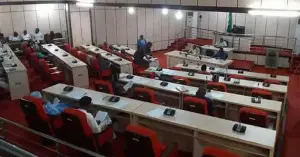The Zaria chapter of the Senior Staff Association of Nigeria Polytechnics (SSANIP) has threatened to resume a previously suspended strike action against the Nigerian Institute of Leather and Science Technology (NILEST) over alleged staff victimization and unpaid entitlements.
In a resolution jointly signed by the chapter chairman, Adamu Ibrahim, and secretary, Bitrus Zaman, the union accused the Director General of NILEST, Dr. Auwal Mustapha Imam, of administrative high-handedness and victimization of staff members.
The union specifically demanded the reversal of the recent demotion of Mr. Adamu Ibrahim, who served as NILEST's deputy director of finance and accounts. SSANIP described the action as "a targeted act of victimisation" that reflects deeper grievances over staff welfare and management practices at the institute.
Among the key issues raised by the union are the controversial staff transfers carried out without proper consultation, which SSANIP claims have disrupted the work environment and undermined industrial peace. The union has called for these transfers to be reversed in the interest of transparency and due process.
Another major concern highlighted in the resolution is the non-payment of promotion arrears and salaries owed to staff at the institute's extension centres since January 2022. The union emphasized that repatriation allowances are staff entitlements that "should not be delayed."
"The DG must expedite action on these accrued claims," the resolution stated.
SSANIP further accused Dr. Imam of making unilateral decisions on staff matters without engaging the union, describing this approach as a breach of established industrial relations practices.
The union also demanded immediate payment of non-accident bonuses owed to drivers, which they stressed form part of the drivers' contractual rights.
SSANIP warned that failure to address these demands promptly could lead to the resumption of its suspended industrial action, potentially disrupting activities at the research-focused institute.
This development comes amid growing concerns about labor relations in Nigeria's tertiary education sector, with several polytechnic staff unions having raised similar issues in recent months.













